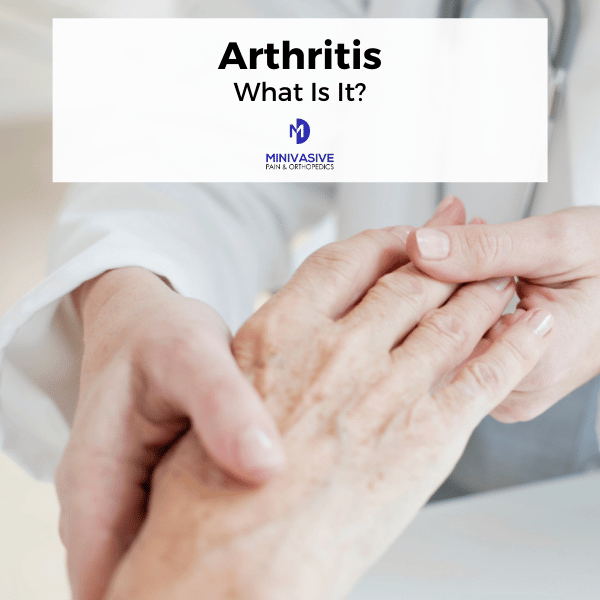Did you know that May is Arthritis Awareness Month? If you’re wondering why this disease – a common disorder that affects your joints and causes pain and inflammation – gets an entire month of attention, it’s because studies have shown that over 23% of adults in the US suffer from arthritis. That’s over 58 million people in the United States alone! When it comes to this common ailment, there are some things you should know. Namely, what the symptoms look like and how the disease progresses. Left untreated, arthritis can cause problems with moving and staying active.
There are many different types of arthritis that affect different groups of people. While most arthritis sufferers are adults, the disease can develop in children as well. Each type requires a different treatment method. Read on to learn more about arthritis below.
What Is It?
Arthritis is a disease that affects your joints and causes inflammation and, in some cases, joint degeneration. In the body, joints are cushioned with soft tissues that prevent your bones from rubbing together. The inflammation and degeneration of these tissues can cause significant pain when you use your joints. The most common areas of the body where arthritis is found include:
- Hands
- Feet
- Knees
- Hips
- Lower Back
Types of Arthritis
Like we mentioned before, there are many different types of arthritis that affect different types of people. The term can be used to describe over 100 types of joint conditions, but the most common include:
- Osteoarthritis: Otherwise known as “wear and tear” arthritis, this form of the disease develops when joint cartilage breaks down from repeated stress. This is the most common form.
- Rheumatoid (RA): this form of the disease causes the immune system to attack synovial membranes in your joints.
- Juvenile (JA): JA typically affects children under the age of 16. The disorder causes the immune system to attack the membranes around the joints, similar to RA.
- Psoriatic: Joint inflammation that affects people with psoriasis.
- Gout: A disease that causes crystals of uric acid to form in your joints.
- Ankylosing spondylitis: Arthritis of the spine (usually lower back).
Risk Factors
Certain factors can make you more likely to develop this disease, including:
- Biological Sex: Women are more likely to experience it than men.
- Age: Risk of arthritis increases with age.
- Lifestyle: Lack of exercise or smoking can increase your risk.
- Weight: Obesity can add extra strain on your joints which could lead to the development of arthritis.
Causes
Each type of has a different cause, and some don’t have any known cause. While gout is formed by too much uric acid in the body, other types can be narrowed down to things like:
- Family history
- Playing sports or working a job that adds repeated stress on your joints
- A history of autoimmune diseases or viral infections
Symptoms
Just like different forms of the disease have different causes, they have different symptoms as well. The most common symptoms include:
- Stiffness
- Pain
- Redness
- Tenderness
- Swelling
- Warmth
Diagnosis & Treatment
If you think you may be suffering from arthritis, get in touch with your primary care physician right away. They’ll be able to look at your symptoms and discover how joint pain is affecting your life. From there, they may perform a physical exam to assess your mobility and range of motion, check for swelling or tenderness, and evaluate your overall health to determine if something else may be causing your symptoms.
Next you may be asked to schedule an MRI, ultrasound or X-ray so your doctor can assess your joints further.
Unfortunately there is no cure, but there are plenty of ways to manage it. Some cases require a fusion or joint replacement surgery; however, most can be treated with the following:
- Physical Therapy
- Medication, such as non-inflammatory and pain medications
- Therapeutic Injections, like cortisone
Arthritis Help at Minivasive Pain and Orthopedics
At Minivasive Pain, we have a dedicated staff of pain management specialists. No matter who you are or what the cause of your pain may be, it is our mission to treat the causes with both the highest standards of care and quality. With several pain management centers throughout the Houston area, caring for your pain is what we do every day. To learn more, or to schedule an appointment, visit https://minivasivepain.com/contact-us/ or call us at (346) 800-6001.

